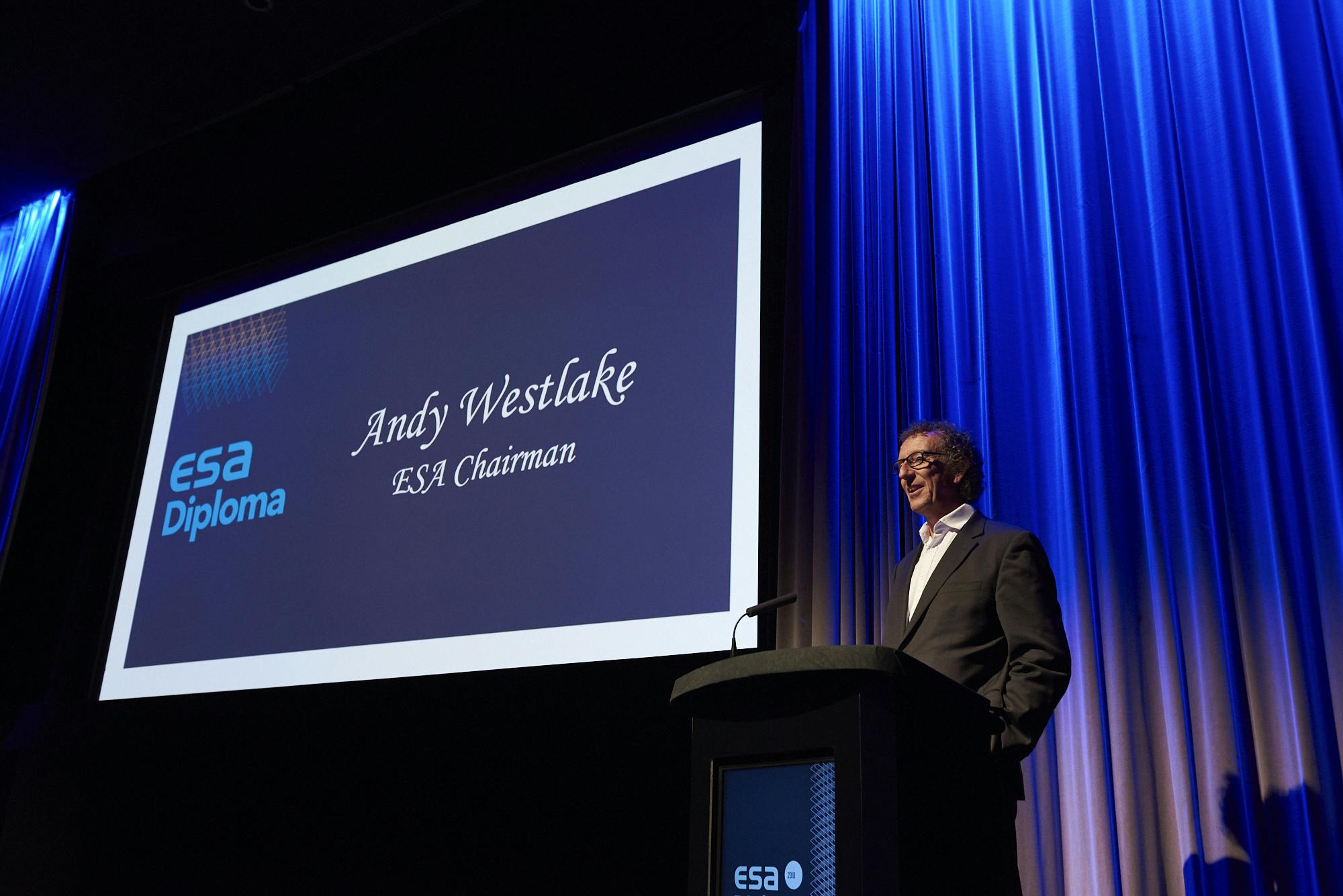The ESA Diploma is the world’s first and currently only formal qualification for the sponsorship and sports marketing industry. Peter Raymond, the course director and founder, created the course after feeling its absence during his own storied career in sponsorship.
“Throughout my career, I wanted some training, some way to improve my knowledge across the industry, and it just wasn’t available,” Raymond tells SportBusiness. “I was somewhat ashamed that our industry never had a formal qualification. Advertising did, PR did, but sponsorship had nothing, and I’ve always thought that was a real hole in the armour for the industry and its credibility.”
Raymond describes his 35-year career in the business as “peaking” with his stint as head of international sponsorships at telecoms provider Orange, a role he left after eight years to establish his own consultancy. He eventually approached ESA in 2009 with his idea for a training course that would offer a comprehensive overview of the entire sponsorship business – in Raymond’s words, “a very hands-on, real-life, practical guide to how to do well in sports marketing and sponsorship”, as opposed to the “very theoretical” courses he tended to come across when looking at sports marketing offerings from colleges and universities.
The course welcomed its first intake of students in 2012, and has since awarded over 350 diplomas to people from across the world of sports sponsorship. The majority of students come from within the sports industry, with employers placing candidates on the course as a means of career development. 44 per cent of graduates from the course to date have come from an agency background, with a further 29 from rights-holders, although Raymond notes with interest that students from rights-holders have outnumbered those from agencies in each of the past two years.

The course is, however, open to all, including people from outside the industry and those independently seeking a way in. “Largely the model is for the employer to pay for their staff to do the course as part of their personal development programmes,” says Raymond, “but we do have a fair number of people who are either changing careers or coming straight out of uni and are dead set on a career in sports marketing”.
Andy Westlake, chairman of ESA, describes the association’s overall goal as to “inspire, unite and grow the sponsorship industry”, and says that the diploma underpins that mission by helping to put “better, more informed, more educated people in the heart of sponsorship”.
Before the creation of the ESA Diploma, the only learning opportunities for the sponsorship industry were as part of a sports marketing or sports management degree, where “students have probably spent one or two days at most, looking at and learning about the world of sponsorship”, says Westlake. “So we felt that it was important to find ways to have better people working inside the industry, people that were fast-tracked, if you like, into a much higher academic level, understanding the nuances of an industry that is moving at 100,000 miles an hour.”
Westlake himself was a strong advocate of the diploma even before he began working for ESA. In his previous role as chief executive of CSM-owned agency Fast Track, he would place “one or two Fast Track employees per year” on the course, and it became “an important differentiator to have students on the diploma who could then bring that knowledge back into the agency”.
Those candidates would come from different stages of their careers, showing the flexibility of the diploma. “We used to send senior account managers and account director-level people who we knew were committed to putting the time in,” he says. “But also those people who we felt were the real rainmakers in the agency, who deserved an extra boost and an extra leg up to get to the next stage of their careers.” CSM continues to place employees on the diploma to this day.
The ESA Diploma runs for seven months and while being a distance learning course open to anyone anywhere in the world, involves six monthly seminars held in London. These are filmed and distributed online for those students who are unable to attend the class. As the overwhelming majority of candidates are working while studying, the course is flexible and freeform, with only three deadlines over the seven months: one at the halfway point for the assignment questions for the first three modules, one after six months for the final three modules, and the submission of the final project at the end.
That project is a “real-life marketing study”, says Raymond, which sees the students working with either a rights-holder or a brand on a brief – part of his efforts to make the course practical, not simply theoretical. The question for the final project is set right at the beginning of the course, so that students again have the flexibility to work on it across the seven months, or tackle it all in the final month.

Raymond describes the diploma as “deliberately testing”, written to push and challenge students, “because I always believe if you get a qualification, you want to feel proud of getting it”, and also because sponsorship, by its nature, is a much more complicated discipline than it might appear at first glance.
“Sponsorship is a lot of different disciplines and it’s quite hard to see the big picture,” he says. “You have to pull together lots of strands to really see how it works and how it’s finessed. And there are different approaches, you must remember, for sponsors, rights-holders and agencies; all have different priorities and objectives. This course goes through all of them. So if you work for an agency, you’ll gain a pretty good grounding on what sponsors are looking for, and vice-versa. We give people that 360-degree look at the industry, so although they’re only in a small part of it, they get to see how all sorts of other strands come to be developed.”
But above all, Raymond says what the course gives students is confidence. “I know from the feedback we get at the end of each year that people enjoy the course, as well as learning an awful lot,” he says. “They can enter conversations they would otherwise have felt a bit excluded from, because they have a lot more to talk about and they know that they know how things work in our business, rather than thinking they know. I have little doubt that we’ve created something formidable.”
Over the seven graduating classes so far, Raymond says 80 per cent of students have come from England, Scotland and Wales, ten per cent from Ireland and ten per cent from the rest of the world – including Europe, Australia and America. An ambition of Raymond’s and Westlake’s is to grow that latter figure.
“We’re deliberately now beginning to want a slightly more international footprint, involving other overseas markets, so we can pull in more diverse content,” says Raymond. “We’ve appointed an agent in the US and one in South Africa to represent us and we’ll be looking to make more appointments in the next 12 months. So we are actively looking to recruit more students from those markets and possibly looking at a kind of franchise model in how we’re going to achieve that.”
Raymond adds that ESA will always “keep control of the learning, and never let it be different in another country”, so that the qualification and the achievement remain the same, wherever the student is based. “We’re very aspirational about where we want to take the diploma, to the advantage of everybody.”
Enrolment for the 2019 ESA Diploma closes on January 17. For more information click here.